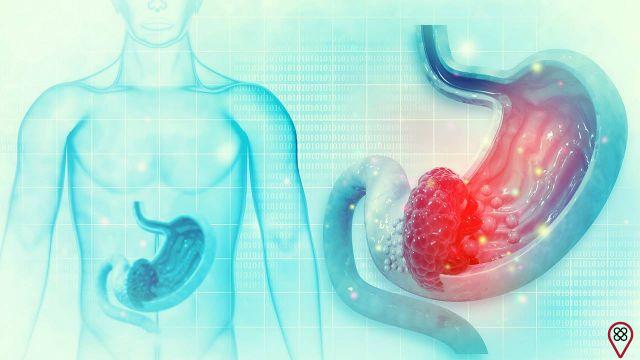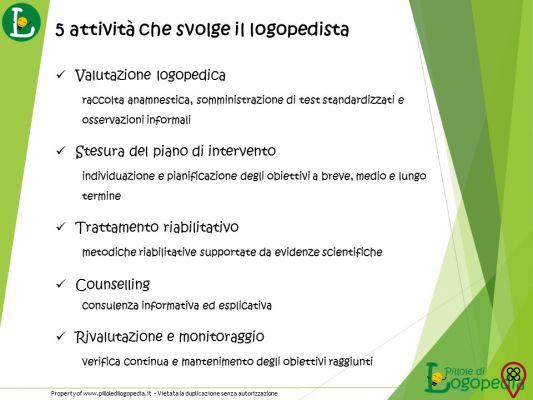
Do you often experience heartburn? That burning sensation after eating a certain food. Or maybe you constantly suffer from bad digestion problems or stomach pains? If you identified with any of these options, know that you may have gastritis.
A disease considered common, with more than 2 million cases a year in Spain alone – according to information from Hospital Israelita Albert Einstein –, gastritis is increasingly affecting people around the world. The reason? There are several factors that can trigger this disease. From poor diet, medication use, alcohol consumption, to emotional and nervous system issues. But have you ever heard of allergic gastritis? Do you know how and why it occurs? Keep reading and clear all your doubts about gastritis and its main types.
What is gastritis and its variations
Gastritis is a disease that consists of inflammation, erosion or irritation of the stomach lining (inner walls that line the organ). It has two main types, which are based on how long they last: acute gastritis (days or weeks) and chronic gastritis (months or years). In addition to the time factor, there are variations that specify a little more the area affected by the disease, as well as its causes and symptoms. Check out a little more about the types of gastritis:
Acute gastritis
This type of gastritis causes sudden great discomfort, but it lasts for a short time. Acute gastritis usually occurs when a bacterium called Helicobacter pylori – known as H. pylori – is present in the body, but it also manifests itself from the excessive consumption of fats, spicy foods and anti-inflammatories.
Chronic gastritis
Defined by its long duration, chronic gastritis has symptoms that increase over time, along with inflammation and irritation of the stomach lining. The picture of the disease is a crescent one: it goes from the initial phase, called mild gastritis, which consists of only a part of the affected stomach mucosa, to the advanced phase, known as gastric atrophy, which consists of practically the entire mucosa of the affected organ. , which can progress to ulcer or even cancer.
This variation of gastritis can also arise from the presence of H. pylori, but in some cases it can be a result of the patient's own immune system, which for some erroneous reason tends to "think" that there is some threat in their stomach.
Nervous gastritis
Much is heard about nervous gastritis, but this variation of the disease is not diagnosable through imaging and laboratory tests – while the others are. This term is used when a patient experiences the common symptoms of gastritis but has no change in the stomach lining. Automatically, factors of the nervous system are associated with such discomforts, which soon disappear with time.
allergic gastritis
This type of gastritis is not triggered by bacteria or the nervous system. Allergic gastritis results from a reflex of the patient's immune system, which ends up increasing the cells that defend the body from possible infections - called eosinophils. It is as if the organism itself tries to defend itself against something that does not exist and thus ends up promoting stomach discomforts identical to those of other types of gastritis.
Allergic or emotional gastritis, understand the difference
Like emotional or nervous gastritis, allergic gastritis is characterized by severe stomach pain, heartburn, nausea, and vomiting. However, its cause is related to the reaction that occurs when there is the ingestion of some food that causes allergy to that organism.
In these cases, there is an increase in the number of eosinophils, blood defense cells, in the gastric wall, thus indicating that some allergic process has been detected by the immune system. The diagnosis is made through a biopsy during endoscopy.
This inflammation is quite rare and therefore should only be considered in people with a history of allergies and after appropriate examinations and tests. Allergic gastritis is treated with the use of medications such as corticosteroids.
In emotional gastritis, there is no change in the gastric mucosa, and the diagnosis is made by exclusion. That is, if during the endoscopy exam no signs of inflammation are identified, but the patient still suffers from the classic symptoms of gastritis, the hypothesis of emotional gastritis gains strength.
Young people, especially females, are more susceptible to this type of gastritis. Sudden changes in habits, such as a sedentary lifestyle, consumption of processed and fatty foods, and periods of stress or anxiety in the person's life cause an increase in stomach acids, causing this condition.
Therefore, the only way to find out if gastritis is allergic or emotional is to consult a professional gastroenterologist. Only after the exams and the correct diagnosis is that the treatment can proceed properly.
symptoms of gastric
Even though there are different types of gastritis, their symptoms are basically the same. Check out the main discomforts caused by the disease:
- Azia
- burning sensation
- Indigestion
- Nausea
- Vomiting
- Sensation of food “stuck” in the esophagus
- Reflux
- Stomach ache
- Frequent belching
- Headache
- Weakness
- Presence of blood in the stool
- malaise
- Insomnia
What can cause gastritis?
One of the main causes of gastritis is the fragility of the barrier responsible for protecting the stomach wall, thus allowing gastric juices to damage the stomach tissue. Such weakness can be one of the consequences of the presence of H. pylori, but there are many factors that facilitate irritation and inflammation at the site. Pay attention to the main causes of gastritis:
- Excessive consumption of fatty, spicy or acidic foods.
- Excessive alcoholic beverages.
- Lack of chewing food.
- More eating behavior.
- Eat large amounts of food at night, before going to sleep.
- Constant use of anti-inflammatories.
- Smoking.
- Too much stress.
- Consumption of poorly washed food.
- Drugs.
Treatment
Treatment varies depending on the cause and type of gastritis. If you experience any of the symptoms mentioned, we recommend that you immediately seek a gastroenterologist. Only a professional will carry out the tests to obtain a diagnosis and only he will be able to recommend the best treatment. Avoid self-medicating, as taking over-the-counter medications can only alleviate the symptoms, not the cause of your problem, which can cause complications and record your health status.
Most treatments for gastritis are drug-based; but, along with them, changing eating habits is important for your stomach to recover and be healthy again.
Eating habits and gastritis
As gastritis is a disease that directly affects the stomach, we must pay attention to the foods we consume in our daily lives. Most stomach irritations are the result of poor diet and excessive consumption of certain products. Here are some steps to keep your stomach healthy:
Respect meal times: don't go too long without eating and avoid long breaks between meals. Preferably have breakfast, lunch and dinner.
Chew your food well: Most people with gastritis eat too quickly. That means they chew fast too. As digestion begins in the mouth, it is essential that you chew your food well and that you eat your meals calmly.
Sanitize food: avoid consuming contaminated food. For this, you will need to sanitize them very well.
Maintain a healthy diet: eat fruits, vegetables, vegetables and lean meats.
Avoid industrialized products: remove processed and ready-to-eat products from your menu. Prefer fresh food and never reuse cooking oil.
Less fat: Fat is the enemy of digestion. Avoid fatty foods, because, in addition to harming your stomach, fat “settles” in your arteries and causes the body to produce carcinogenic substances.
Don't eat too much at night: take your dinner light and never eat during the night. Night feeding should be as light as possible, as the discomforts of gastritis are more intense during this period.
In addition to maintaining a more regulated diet, you can resort to some teas and natural juices that will aid in digestion and strengthen your body. Check out some tips for teas and juices for gastritis:
Green juice – parsley and cabbage
Parsley and cabbage have a high content of chlorophyll – a substance that is very beneficial to the stomach, which is full of vitamins, oxidants and zinc – so a juice with these ingredients will be a great ally against gastritis. For the preparation, you will need 15 leaves of parsley and 2 leaves of cabbage. Mix these ingredients with a fruit pulp of your choice and add a tablespoon of sprouted flaxseed and 300 ml of water. Drink without straining.
Aloe vera juice
Popularly known as aloe vera, Aloe vera is a powerful natural healing agent that relieves irritation caused by gastritis. To do this, you will need the gel of 2 Aloe vera leaves. Blend it in a blender with 4 tablespoons of water and drink it daily on an empty stomach or before going to bed.
You might also like:
- Relax to avoid gastrite
- Nervous gastritis: the connection between brain and gut
- Learn a Tea for Stomach Pain and Gastritis
- Stomach Pain – What Can It Mean?
Teas
The most suitable teas for the relief of gastritis symptoms are: mint, rosemary, chamomile and espinheira-santa. Use a tablespoon of one of these options to 250 ml of water, strain and drink 30 minutes before your meals.
It is important to point out that when any symptoms persist, you should seek medical attention. From an appointment, changing your eating habits and consuming products that help your body's health will make you restore the normal functions and activities of your stomach, preventing any type of irritation or inflammation in it. Always pay attention to your body's signals and remember: when left untreated, gastritis can develop into ulcers and even cancer.

























